SNP ‘has a lot of work to do on transphobia’ after Nicola Sturgeon resignation
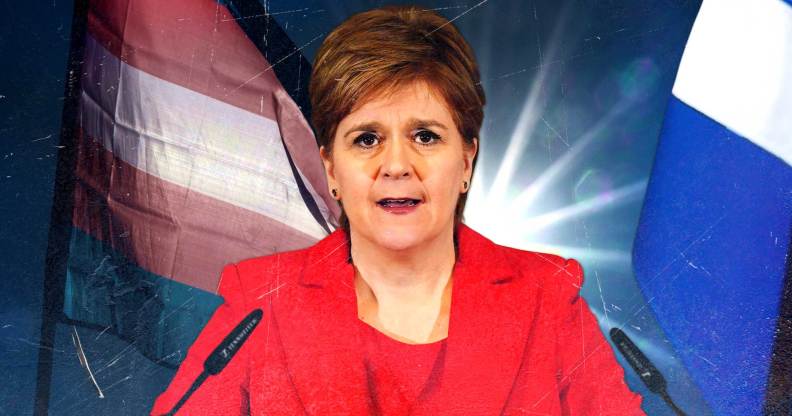
Nicola Sturgeon announced her shock resignation at a press conference in Edinburgh. (Getty)
LGBTQ+ activists will remember Nicola Sturgeon as a “brave” and “influential” leader who stood up for queer people – even if she was unable to weed out transphobia in the SNP.
Sturgeon announced that she was preparing to step down as first minister and leader of the SNP at a press conference on Wednesday (15 February).
Tributes immediately flooded in from LGBTQ+ activists, with many thanking Nicola Sturgeon for her compassion and commitment to gender recognition reform – even in the face of fierce opposition.
It remains to be seen whether her successor will follow this legacy. While Sturgeon is regarded as a genuine trans ally, there is a small but vocal “gender critical” faction within the SNP, and concerns about transphobia within its ranks.
Teddy Hope is a former SNP member who left the party in 2021 after it failed to take action following a transphobic incident at a meeting in Bearsden. They felt “grief” when they heard Sturgeon was stepping down.
“She was so influential and I looked up to her greatly,” Hope tells PinkNews.
“While I know there were flaws in the wider SNP with how transphobia was dealt with, I always saw her as a very strong ally.”
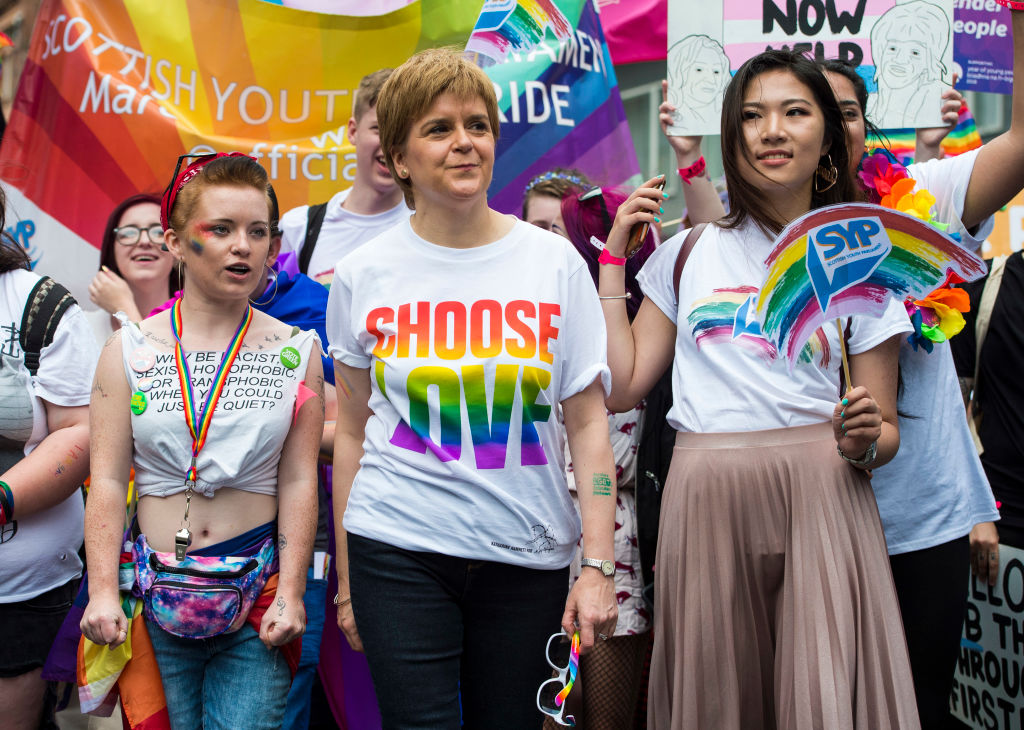
After Hope quit the party in 2021, Sturgeon spoke out against transphobia in the SNP in a video that was widely praised.
“Yes, we have differences of opinion on gender-recognition reform – we should debate them openly and respectfully – but no debate can be a cover for transphobia,” she said.
“Trans people have as much right as any of us to be safe, secure and valued for who they are. Transphobia is wrong and we must treat it with the zero tolerance we treat racism or homophobia.”
Sturgeon put her reputation on the line by making that statement, Hope says.
They feel “a deep sense of gratitude” to her for speaking out, but they also believe that it came too late – a fringe minority had already established an anti-trans faction of the SNP at that stage.
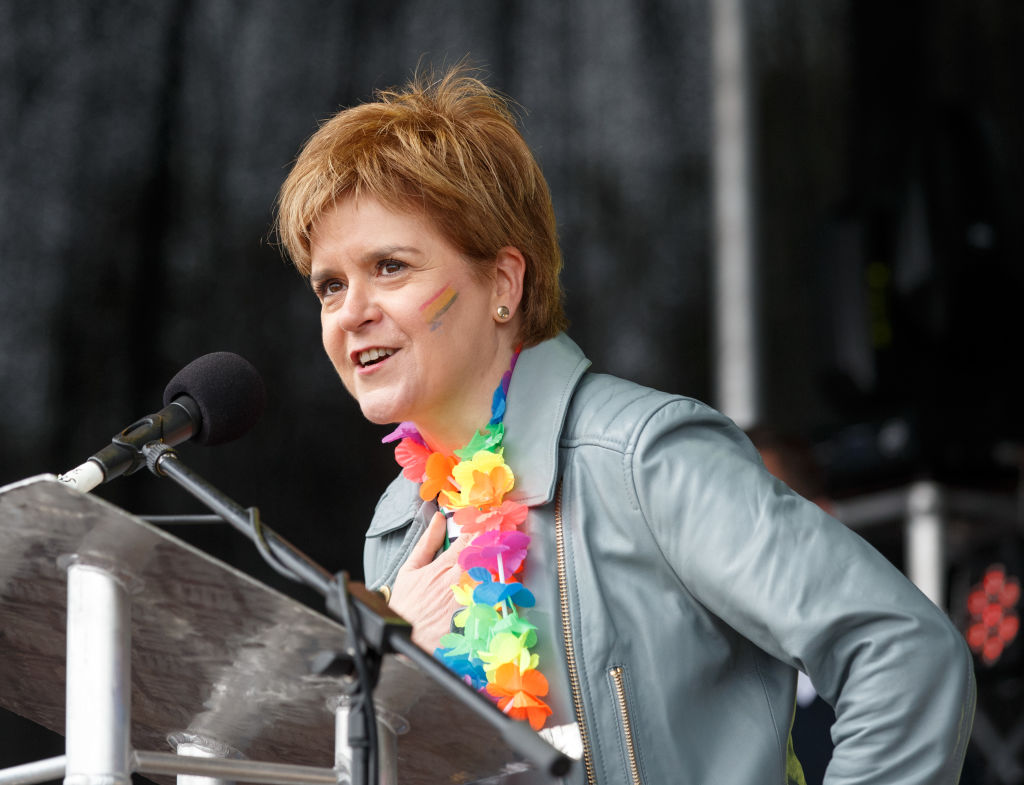
Hope says there was “institutional inertia” within the SNP when it came to dealing with transphobic abuse.
That’s not unique to the SNP – many organisations now avoid doing anything about transphobia because they’re “terrified of being sued” by so-called “gender critical” activists, they add.
Hope is now a Green Party member – and they couldn’t imagine themselves ever returning to the SNP.
“I’m really just personally a bit emotionally exhausted with the SNP,” they say.
“I felt quite heartbroken by what had occurred within the doors of that institution and I just don’t think it’s particularly safe for trans people to organise effectively within it unless it was institutionally queer from the get go.”
Nicola Sturgeon ‘set the tone’ on LGBTQ+ rights
Erin Lux, co-convenor of the SNP’s LGBTQ+ group Out for Independence, agrees that there’s still “a lot of work to do in the party on transphobia”.
However, she describes Sturgeon as a fierce ally who has always had the best interests of LGBTQ+ people at heart.
“As leader she set the tone in support of the LGBTQ+ community, and the trans community specifically,” Lux says.
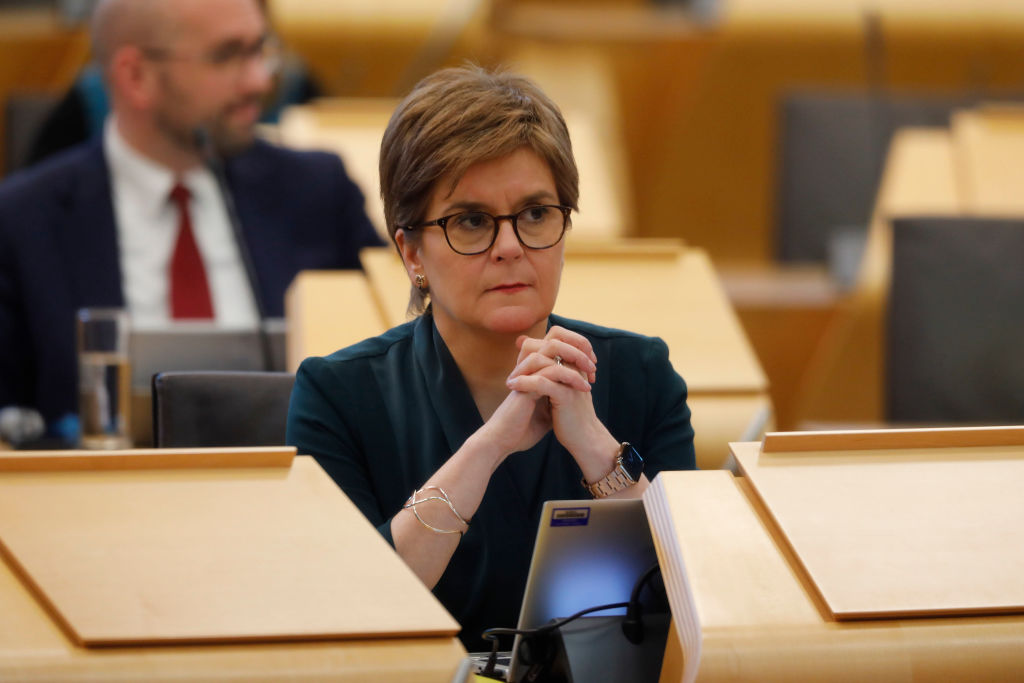
“She is an absolute giant. She is the best leader this party’s ever seen, she’s the best leader Scotland has ever seen.”
In particular, Lux praises Sturgeon for pursing gender recognition reform even in the face of opposition within the party and fierce criticism in the media. The SNP passed legislation in Holyrood that would have made it easier for trans people to access Gender Recognition Certificates (GRCs), which in turn are used to record a trans person’s gender on birth, death, marriage and civil partnership certificates.
The bill was blocked by Westminster in an unprecedented move, with Sturgeon having promised a legal challenge.
“She’s been a consistent voice for inclusion even when that hasn’t been popular,” Lux says. “She will be sorely missed.”
That’s echoed by Paul Leinster, an SNP councillor for Langside in Glasgow. He says Sturgeon “never wavered in her commitment to LGBTQ+ rights” throughout her time as first minister.
“Since becoming first minister she has driven forward legislation to improve the lives of LGBTQ+ people like the pardon for gay and bisexual men who were convicted before homosexuality was decriminalised,” he tells PinkNews.
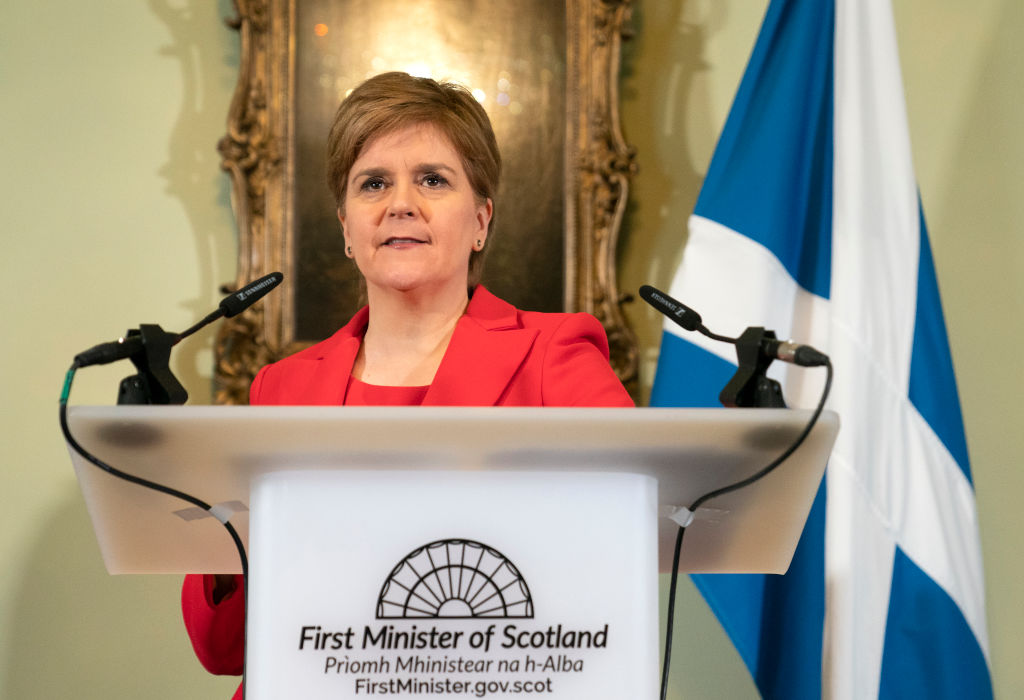
“Her government has embedded LGBTQ+ education into the Scottish curriculum, and she was the first leader of a government anywhere in the UK to lead a Pride march when she led Glasgow Pride in 2019.
“Crucially, she was entirely committed to reforming the gender recognition process in Scotland, driving forward the legislation despite opposition from all sides, because she knew it was the right thing to do.”
As Sturgeon finally steps back from leadership, Leinster says she has “changed Scotland for the better and made it a better place for LGBTQ+ people”.
“On a personal level, she has never been anything but supportive of my partner and me and she is without a doubt a true ally of the LGBTQ+ community,” he says.
PinkNews has contacted the SNP for comment.

